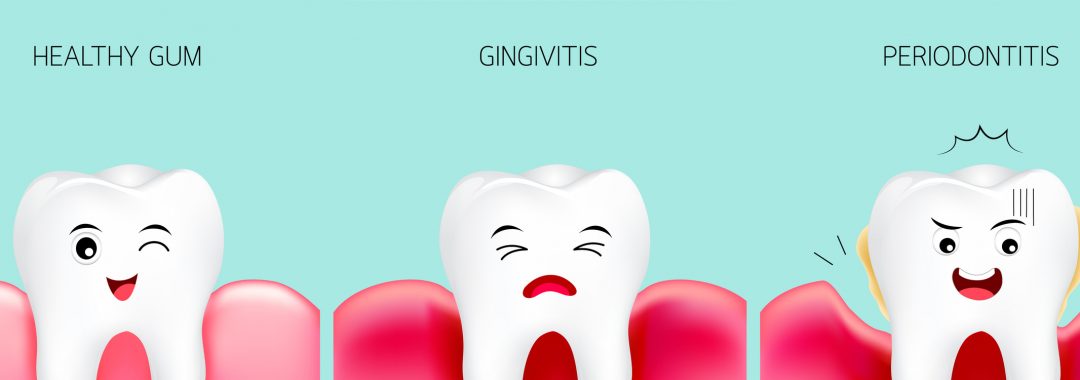Dental Newington
Our gums are as important as the teeth they hold. If our gums are infected then we risk losing both teeth and bone from our jaw. Gum infections are a serious concern.
Our gums are more likely to become infected if we neglect brushing and cleaning. The bad bacteria in our mouth that cause dental decay will also cause gum infections if we are not careful. This infection often goes unnoticed, but quickly develops into a serious issue. If we catch in the infection in the earlier stages it can usually be cured, But once the infection has progressed too far it becomes permanent. After this point it can only be managed with ongoing treatment, never fully cured.
Newington Dental
Gingivitis
This is the earliest stage of gum disease. It causes the gums to become off-coloured, perhaps dark red or pale white; the gums will also become sore over time. Because of the bad bacteria behind the infection the teeth are often suffering at the same time, being prone to decay.
Gingivitis can be cured with the use of strong disinfectant mouthwash, salt water rinses and diligent brushing and flossing. We may need to clean our teeth and gums, and use mouthwash, three times a day to get rid Gingivitis.
Gingivitis will often grow worse if it is not immediately dealt with, becoming the more serious infection called periodontal Disease (AKA, Periodontitis).
Periodontal Disease
This is a more advanced form of gum infection, where other types of bad bacteria infect the mouth. It usually develops from Gingivitis, but sometimes it appears on its own. Over time periodontal disease causes the loss of teeth and bone, which cannot be recovered. It is a very serious, life threatening condition.
Periodontitis might be reversed if caught very early on, though it requires special treatment by the dentist. But once it has started to advance it becomes permanent, requiring ongoing treatment that can only prevent the condition from becoming worse, and preventing the loss of the teeth and jawbone.
If the periodontal infection has caused damage a specialist dentist called a periodontist will be needed to help repair the teeth and remove at least some of the damage. This may entail surgery that open up the gums to remove infected areas, including decayed portions of the tooth roots.
The bacteria involved in periodontal disease has been linked to cardiovascular problems and dementia. Individuals who suffer periodontal disease in their middle years are much more likely to develop dementia and cardiovascular conditions in their old age. This is reason enough to avoid periodontal disease.
Dental Newington
Diligent daily brushing, flossing and use of mouthwash greatly reduce the chance of contracting gum disease. A healthy diet with minimal junk food and sugar also help.
Report any concerns of gum disease to the dentist. Early intervention can cure the problem before the damage is too severe.










